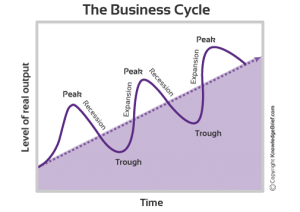Starbucks (The Official Starbucks Secret Menu)
One of my classmates-Liu Yi, has recently posted a blog which was titled ‘innovation and customer loyalty’. In the blog, Liu Yi argues the importance of innovations to companies, and how do market researches help in ensuring those innovations satisfy customers’ needs. As companies aim to stabilize and minimize fluctuations through the business cycle, it is necessary for them to produce products which meet customers’ needs in long term. Therefore, as Liu Yi says in his blog, companies always tend to create more various and fancier products to fit customers’ needs. However, do these innovations always meet customers’ expectations? By giving Starbucks plans to bring back some products from old meau due to the complaints on new pastries as an example, Liu Yi says innovation is a paradox sometimes. In my point of view, innovation is important to every company. Customers are fickle, and they always love to follow trends in the society. By making innovations, the companies not only able to ‘surprise’ customers with its new products, but it also satisfy customers’ expectations in different time periods. A successful innovation could bring the company into the top of the trend. However, I agree with Yi is that market researches are very important in making innovations. Innovations are not always meet customers’ expectations. Customers in different times, in different ages or in different culture groups might have different needs and expectations. To make a successful innovations, companies should fully understand their targeted customers’ wants and needs by doing market researches such as making questionnaires or providing sample tastings. These market researches will give companies general ideas on what their targeted customers expect from your companies. Yes. Innovations might be a paradox, however if companies have planned innovations based on the results from market researches, these successful innovations will bring companies into a new and higher position.
link to https://blogs.ubc.ca/yi1996/2014/11/04/innovation-customer-loyalty/
Bibliography:
Starbucks Secret Menus – #1 Official Secret Menu 280 Recipes. (n.d.). Retrieved November 11, 2014, from http://secretmenus.com/starbucks/secret-menu/
 Vancouver (
Vancouver ( Customer Service (
Customer Service ( TOMS (Sporting Life)
TOMS (Sporting Life) Online Commerce (
Online Commerce ( Photo of a TNDC land clearing crew (First Nations Inc.: Tahltan-AltaGas partnership a win-win, Vancouver Sun)
Photo of a TNDC land clearing crew (First Nations Inc.: Tahltan-AltaGas partnership a win-win, Vancouver Sun) Koala (Cuddling koalas is big business for Sydney private zoo, BBC)
Koala (Cuddling koalas is big business for Sydney private zoo, BBC) Location (Why Does Location Matter?, EntrepreneurshipReview)
Location (Why Does Location Matter?, EntrepreneurshipReview) Business Cycle (Business Cycle, KBManage)
Business Cycle (Business Cycle, KBManage) BlackBerry (BlackBerry Not there yet, BBC)
BlackBerry (BlackBerry Not there yet, BBC) US-Money (U.S. regulators must weigh safety versus practicality with money-market funds reforms,The Knowledge Effect)
US-Money (U.S. regulators must weigh safety versus practicality with money-market funds reforms,The Knowledge Effect) Photo of textile workers in Turkish ( Turkey's textile industry: Improvement in sight?,DW)
Photo of textile workers in Turkish ( Turkey's textile industry: Improvement in sight?,DW)